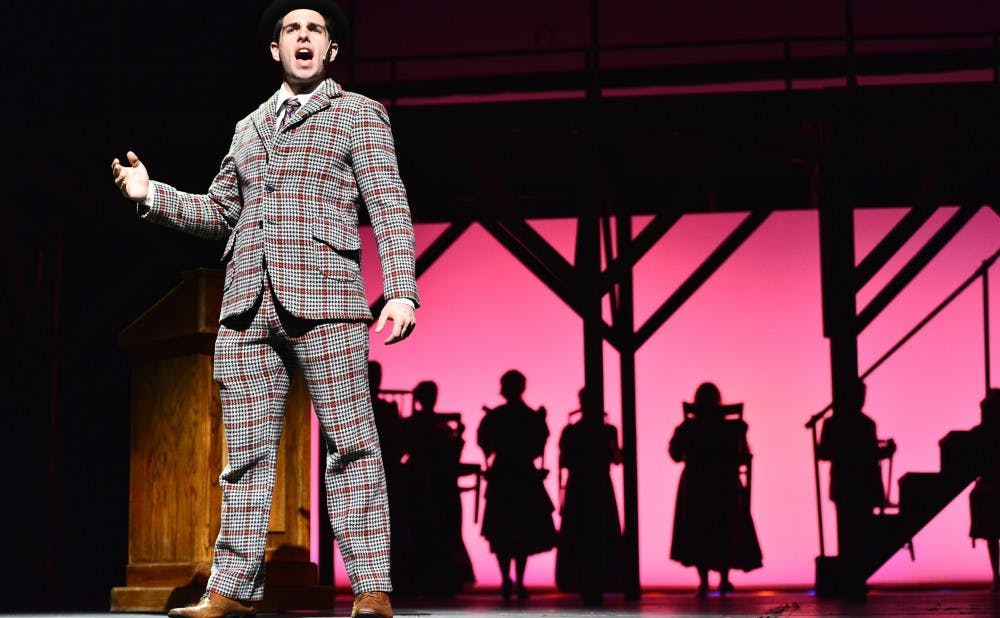This show is frequently punctuated with laughter and lively dancing, as might be suggested by the title. However, these festivities serve not to bring about an escape from the show’s somberness, but to enhance the repugnance of the mob mentality which ultimately hangs Leo Frank. Though it is difficult not to be seduced by the gorgeous music and spirited dancing, it feels inappropriate at times to nod along to the beat.
But in this way, the musical also interrogates the audience. During Frank’s prosecution, the synchronized dance movements of the witnesses border on the ridiculous and are more repulsive than enjoyable to watch. Our innate association of dance with beauty is thrown out the window and replaced with discomfort. No matter how much we would like to enjoy it, we are unnerved by it and the characters who participate in it. The trial tangles one’s emotions to such an extent that when the “guilty” verdict comes from actors that emerge from the audience, we can’t help but scream a silent “No!” It does not matter how violently we internally retaliate; our voices cannot be heard over the mob.
Issues of anti-Semitism and racism are not as heavily elaborated upon as mob mentality, though they are undeniably present throughout the play. There is an interesting dynamic between anti-Semitism and anti-black racism, particularly during the simultaneous police interrogation of Frank and Newt Lee, the black night watchman who discovered Mary Phagan’s body. The physical back-and-forth movement of the policemen reflects the audience’s discomfiting conflict. The scene dares us to make conclusions about the murderer based on racial preconceptions.
But the core of this play’s injustice lies not in the racism and anti-Semitism, but in love. Frank and his wife Lucille’s eventual realization of love, and their inability to experience it fully is what makes the ending all the more tragic and unjust. At the beginning of the play, it was difficult to imagine them as friends, let alone lovers. But while Frank is increasingly alienated from his Southern surroundings, his bond with his wife grows. However, his immediate epiphany of love seems a bit unfounded. He is cold toward Lucille until the moment her strong-mindedness and determination convinces the governor to reconsider his death sentence. Frank's subsequent realization of love for his wife seems sudden and based solely on her “usefulness” to him. However unbelievable his proclamation of love is, their last kiss is as passionate and desperate as they get.
The play comes full circle, starting and ending on Confederate Memorial Day. During this day a celebratory parade honors the Confederate soldiers of the American Civil War. While remarking on the power of mobs, the parade also unintentionally perpetuates the problem. The parade is both a haunting relic of historic mob mentality and a looming prediction for its continuation. Though the parade is specifically meant to honor fallen Confederate soldiers, it is impossible not to also hear Leo Frank’s name ring throughout the streets.
Get The Chronicle straight to your inbox
Signup for our weekly newsletter. Cancel at any time.

